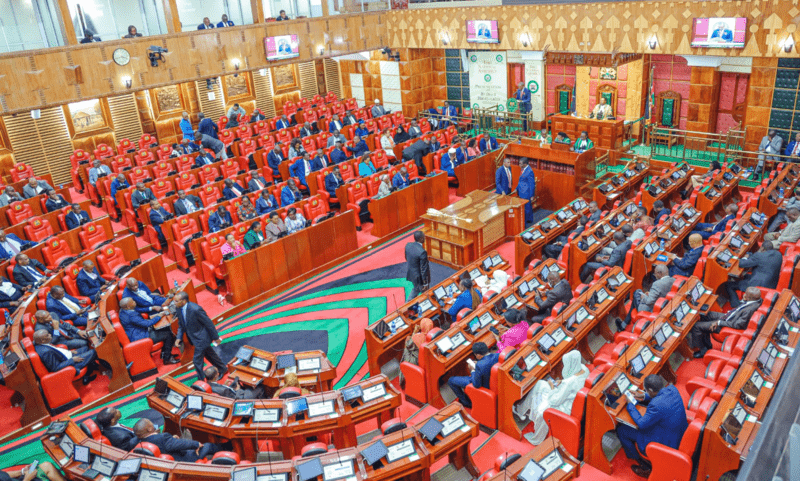Katiba Institute has taken a firm stand, urging greater transparency in how Members of Parliament (MPs) are compensated for their work.
This comes after reports revealed that all 416 MPs were recently awarded significant mileage payments, regardless of the distance they actually travelled.
The lobby group is demanding to know the criteria used to justify these allowances and is calling for full access to the records regarding MPs’ salaries and perks.
In a formal request made on March 30, 2025, Katiba Institute wrote to both the Salaries and Remuneration Commission (SRC) and the Parliamentary Service Commission (PSC).
They seek detailed information on legislators' employment terms, allowances, and benefits under the Access to Information Act and Article 35 of the Constitution, which guarantees citizens the right to access public information.
"We want to see the evidence used to justify the salaries and perks MPs are getting. This includes labour market surveys and whether the SRC has ever proposed adjustments since 2011," the lobby said in its letter.
The group is particularly concerned with the fixed monthly mileage allowance of Sh366,011 granted to each MP, amounting to nearly Sh2 billion annually for taxpayers.
This does not include additional allowances, such as the monthly car maintenance payout of Sh356,500 and committee sitting allowances.
Katiba Institute also wants clarification from the two commissions on whether MPs are considered full-time or part-time employees, a key detail in understanding how allowances are set.
The group has requested copies of MPs' contracts, salary structures, and retirement benefits, and it wants to know whether these have been reviewed since 2011.
Any unjustified changes in these terms could signal the misuse of public funds, the lobby warns.
This action by Katiba Institute comes after widespread public outcry over the large sums MPs are receiving in allowances despite what many see as relatively little legislative work.
Past audit reports have raised alarms over suspicious claims, with some MPs reportedly earning millions on top of their regular salaries in allowances.
The move has struck a chord, especially amid ongoing protests from other public sector workers, including teachers and doctors, who are demanding better pay as the country’s economy struggles.
"Taxpayers have a right to know how their money is being used," said Chris Owala, an activist supporting the push for transparency.
"If MPs have nothing to hide, they should have no problem releasing these documents."
Legal experts argue that the request for transparency is not only justified but is also crucial for maintaining constitutional values of accountability and openness in government.
If the SRC and PSC fail to provide the requested information, Katiba Institute has vowed to take the matter to the Commission on Administrative Justice or pursue legal action to compel the release of the documents.
Civil society organizations have rallied behind Katiba Institute’s efforts, asserting that the lack of clarity around MPs' allowances and benefits has led to widespread public mistrust.
As pressure mounts on the SRC and PSC, the public is watching closely, and the commissions now face the challenge of either complying with the transparency request or risking legal consequences.
